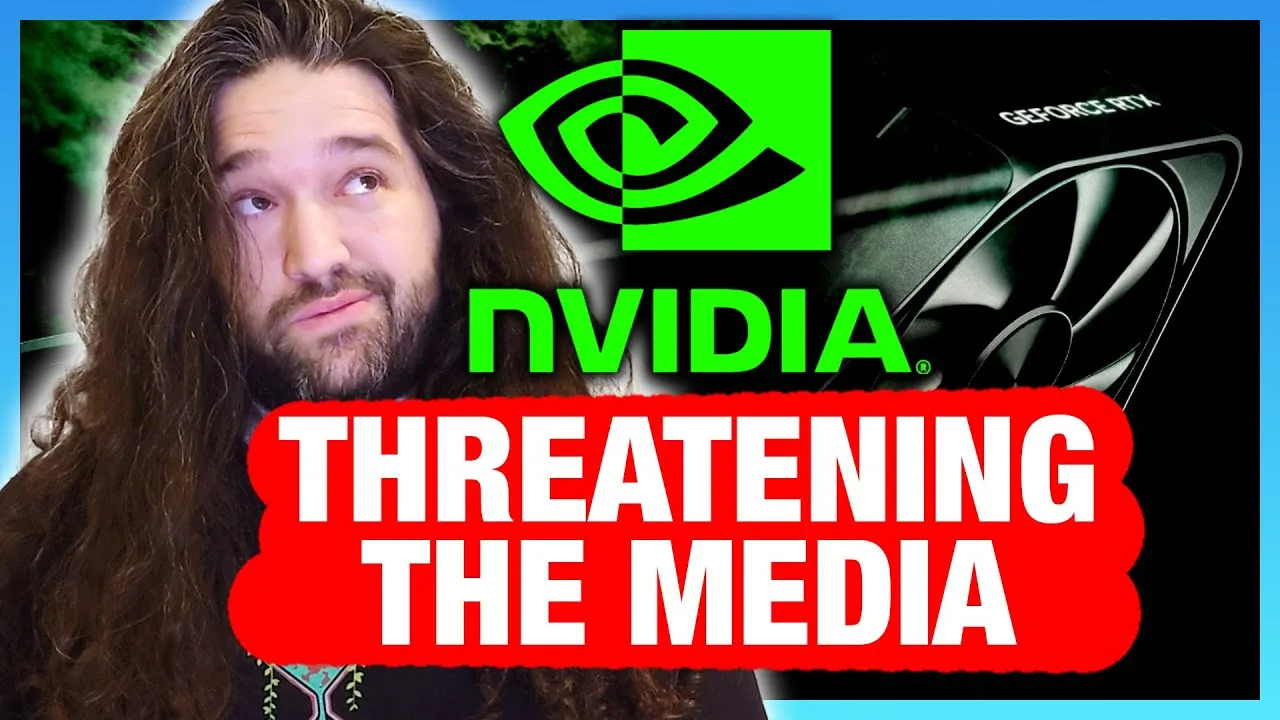
In the ever-evolving world of tech journalism, transparency and integrity are paramount. However, recent allegations from Gamers Nexus suggest that Nvidia may be engaging in questionable media practices to control the narrative surrounding its latest GPU releases. This controversy has sparked discussions about corporate influence, journalistic ethics, and the delicate balance between access and independence.
The Accusations: Nvidia’s Alleged Media Pressure Tactics
Gamers Nexus, a well-respected voice in the PC hardware community, has accused Nvidia of pressuring reviewers to include performance metrics for features like Multi-Frame Generation 4X (MFG4X) in their reviews—even when the tested hardware does not support the feature. According to Gamers Nexus, Nvidia allegedly threatened to withhold access to key engineers and internal resources if reviewers did not comply with these demands.
This revelation raises concerns about editorial coercion, where companies leverage their influence to shape public perception. If true, such tactics could undermine the credibility of independent reviews and mislead consumers who rely on unbiased assessments before making purchasing decisions.
The allegations against Nvidia are not just about one company—they highlight a larger issue within the tech industry. When corporations dictate review conditions, they compromise journalistic integrity and erode trust between media outlets and their audiences.
Reports indicate that Nvidia has been selectively providing review drivers only to media outlets that agreed to its strict testing conditions. This means that early reviews of the RTX 5060 were conducted under Nvidia’s preferred benchmarks, potentially skewing the results in favor of the company’s narrative. Such practices raise ethical concerns about whether reviewers can truly provide objective assessments when their access is contingent upon compliance.
The tech community plays a crucial role in challenging corporate influence and demanding transparency. Independent reviewers like Gamers Nexus serve as watchdogs, exposing practices that could mislead consumers. By supporting unbiased journalism and engaging in open discussions, the community can push back against manipulative tactics.
Consumers should also be critical of marketing narratives and seek multiple sources before making purchasing decisions. The more informed the audience, the harder it becomes for corporations to control the conversation.
At its core, this controversy is a reminder that corporate influence should never outweigh journalistic integrity. Nvidia’s alleged tactics, if proven true, highlight the power dynamics between tech giants and independent media. As the industry continues to evolve, maintaining transparency and ethical standards will be essential in preserving trust between companies, reviewers, and consumers.
The situation kind of reminds that Nvidia have been in hot waters a few years ago, while a different situation, it did cost a complete distrust from a known partner.
In 2022, EVGA, one of Nvidia’s largest board partners, abruptly exited the GPU market, citing disrespect from Nvidia. According to reports, Nvidia refused to provide basic pre-launch information—such as pricing—until CEO Jensen Huang publicly announced the GPUs. This made it difficult for EVGA to plan its business strategy.
Additionally, Nvidia allegedly restricted pricing on certain cards, while simultaneously releasing Founders Edition GPUs that undercut EVGA’s own products. The oversupply of GPUs further forced EVGA to drastically cut prices, leading to financial losses. Ultimately, EVGA deemed the partnership unprofitable and walked away from the GPU business.

